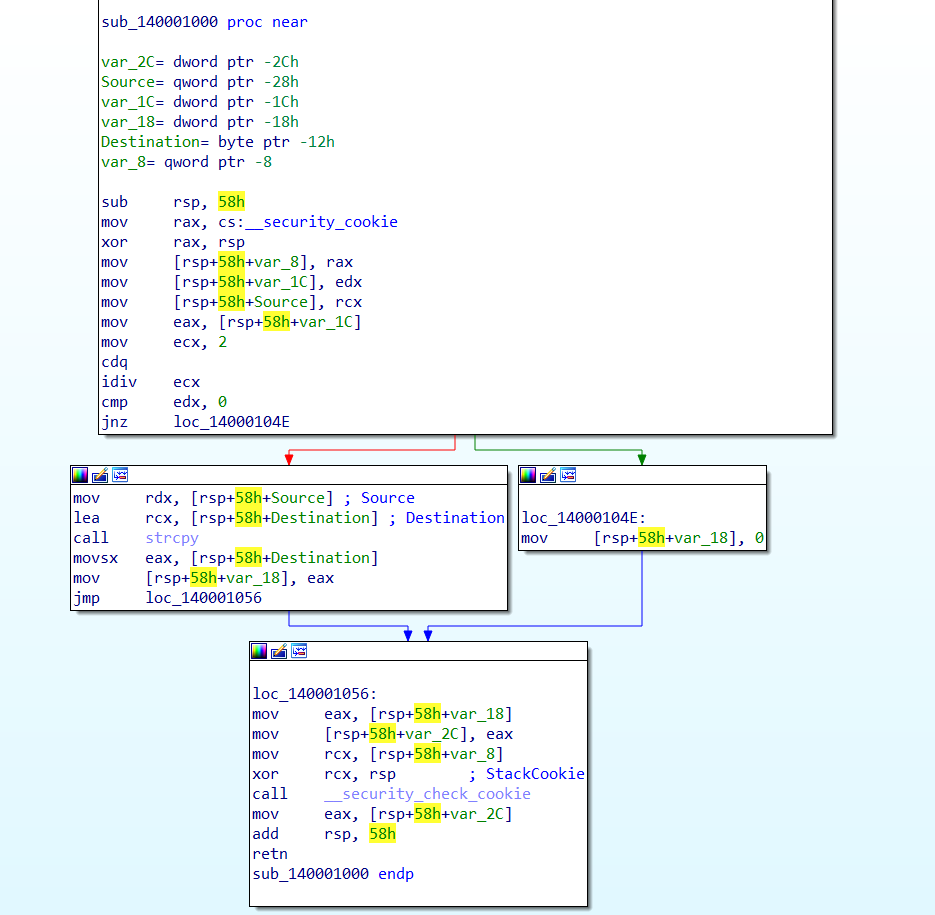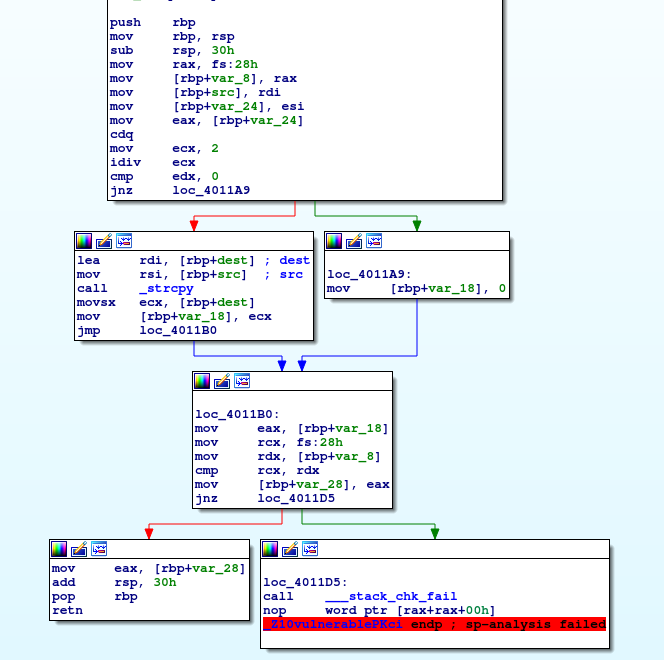@llvm/issue-subscribers-backend-x86
The flag **-fstack-protector** inserts a guard variable (aka stack cookie) onto the stack frame for each vulnerable function. For example, if a function will write a buffer, after the buffer is written, the stack cookie need to be checked to make sure the buffer overflow didn't happen.
Consider the following test case:
```C++
#include <cstring>
#include <cstdlib>
#include <cstdio>
#pragma warning(disable : 4996) // for strcpy use
// Vulnerable function
__attribute__((noinline)) int vulnerable(const char* str , int a) {
if (a % 2 == 0)
{
// Write buffer
char buffer[10];
strcpy(buffer, str);
return buffer[0];
}
return 0;
}
int main() {
// declare buffer that is bigger than expected
const char* str = "This string is longer than 10 characters!!";
printf("%d\n", vulnerable(str, std::rand()));
}
```
The function is vulnerable because it may write the buffer, so there will be a stack cookie on the stack frame. If it enter the branch which write the buffer, the stack cookie need to be checked to avoid buffer overflow.
**If it enter another branch which won't write any buffer, ideally, it's unnecessary to check the cookie. However, we found it will be checked in fact.**
Here is the assembly code:
On Windows:

On Ubuntu:

**By the way, I wonder whether we can inline the __security_check_cookie on Windows.**
The flag -fstack-protector inserts a guard variable (aka stack cookie) onto the stack frame for each vulnerable function. For example, if a function will write a buffer, after the buffer is written, the stack cookie need to be checked to make sure the buffer overflow didn't happen.
Consider the following test case:
The function is vulnerable because it may write the buffer, so there will be a stack cookie on the stack frame. If it enter the branch which write the buffer, the stack cookie need to be checked to avoid buffer overflow. If it enter another branch which won't write any buffer, ideally, it's unnecessary to check the cookie. However, we found it will be checked in fact.
Here is the assembly code: On Windows:
On Ubuntu:
By the way, I wonder whether we can inline the __security_check_cookie on Windows.